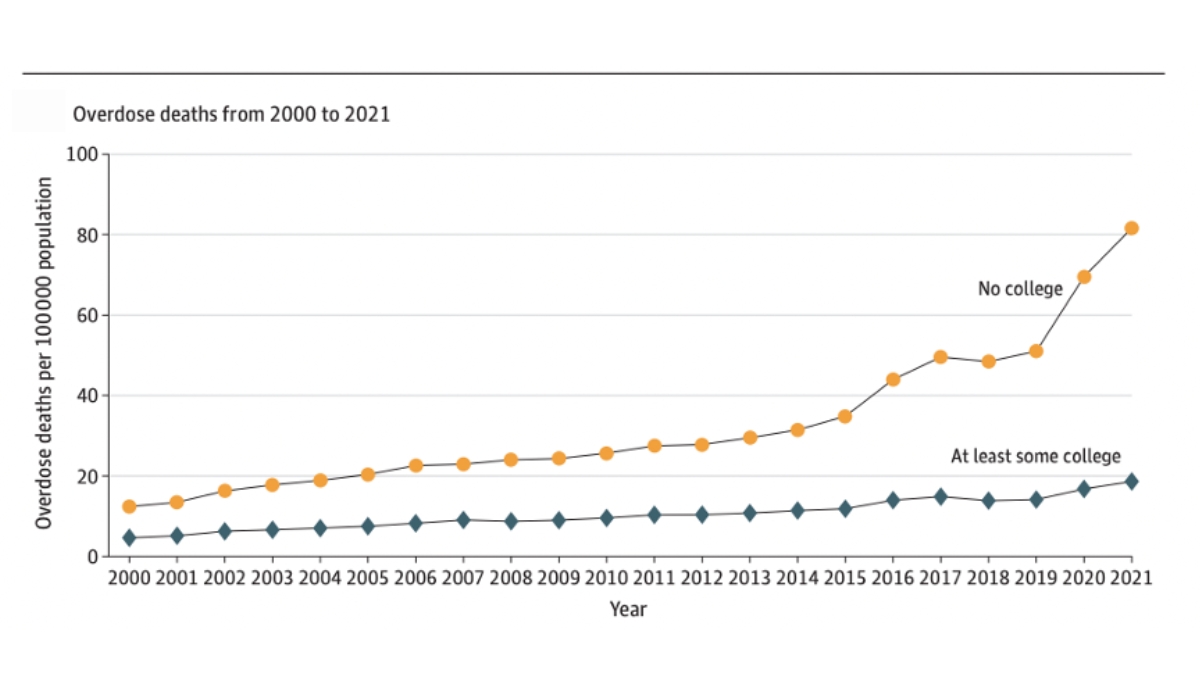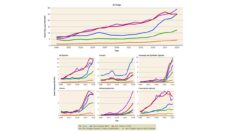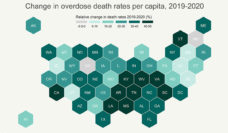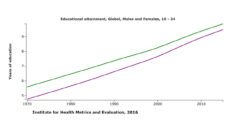Achieving a higher education is linked to longer life. But education access is fraught with inequity, with research showing poorer health outcomes and less financial security among those without a high school diploma or GED. Level of education is also associated with a rise in drug overdose deaths.
David Powell at the RAND corporation tracked overdose deaths from 2000 to 2021 using data from the National Vital Statistic System. Powell looked at the educational information for over 900,000 individuals over the age of 25; nearly 70% did not go to college.
Powell found that people who use drugs had higher death rates than those who did not across all educational levels, but rates were much higher among those with less formal education (i.e. no high school degree).
The graph shows a widening gap between those dying from drug overdose with and without attaining some college education. From 2018 to 2021 alone, overdose deaths for those without a high school diploma increased by 35 per 100,000 people compared to an increase of 10 deaths per 100,000 for those with some college and an increase of 2 deaths per 100,000 for those who graduated with a bachelor’s degree.
Those without a college education in 2000 had a death rate of 12 per 100,000 people. In 2021, that number jumped to 82 per 100,000. Overdose deaths were at an all-time high in 2021, a 17.6% increase from 2020.
The spiking death rate is attributed to the increased availability of fentanyl and other illegally manufactured synthetic opioids. Based on these findings, the study calls for further examination of who is most affected by overdose deaths, what factors connect differences in overdose deaths and level of education, and what resources and expanded treatments exist for higher-risk individuals and communities.
Databyte via David Powell. Educational Attainment and US Drug Overdose Deaths. JAMA Health Forum, 2023.














